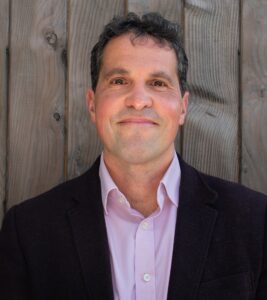Note: Original event date was March 5. It is now booked for March 6. Sorry for any inconvenience.
 On March 6, 2025, writer and historian Gregory Radick presents the 7th MacLennan Lecture, “What If? Alternative Pasts for Science and Technology — and Why They Matter”
On March 6, 2025, writer and historian Gregory Radick presents the 7th MacLennan Lecture, “What If? Alternative Pasts for Science and Technology — and Why They Matter”
Gregory Radick, Professor of History and Philosophy of Science, specializes in the history of the modern biological and human sciences at the University of Leeds.
Abstract
Asking about the pasts that might have happened but didn’t happen comes naturally to us, as much in our individual lives as in our collective ones (what if Churchill hadn’t been the British leader during WWII?). But can such questions be answered well? A suspicion that they can’t be—and therefore that “counterfactual history,” as it’s known, is a waste of time—runs deep in the historical profession. For the history of science and technology, that suspicion is if anything stronger, thanks to a long tradition of supposing that, when the time is ripe for a discovery or invention, it becomes inevitable, so that the scientific and technological present was bound to look like it actually does. In this lecture, Gregory Radick will argue on the contrary that finding out about the possibilities of the past rightly falls under the historian’s job description; that historians of science and technology are in an especially good position to do so in an evidence-based way; and that their making the effort can yield benefits for the present well beyond improved historical understanding.
About the MacLennan Lecture
Established in 2017, the MacLennan Lecture funds a scholar to present a lecture in the field of Science and Technology Studies or in History and Philosophy of Science. The 2024 lecture has been organized by the History of Science and Technology Program.
